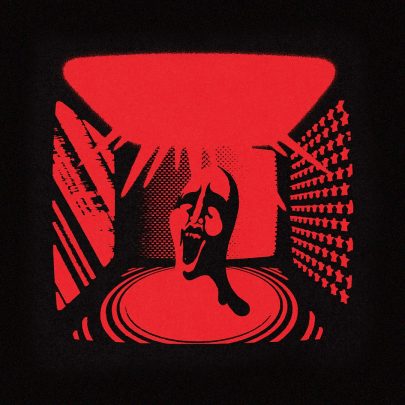Aug 30, 2016 Film & TV
Photo by Adrian Malloch.
“It’s crazy here,” says Vincent Ward, glancing around his St Lukes office, a scribbly whiteboard (“Script. Sam Neill.”) propped against one wall, paper everywhere.
Ward was here and in the cavernous adjoining studio until late the previous night, editing the immersive three-screen “cinematic installation” at the heart of his exhibition, Palimpsest/Landscapes. “I have never put as much firepower and devoted as much time per square frame of film as I have for this fucking show.”
Four years in the making, the exhibition blurs the line between painting and film: Ward painted directly onto his models, creating textures with chalk, plaster, clay and ink, before filming and photographing them.
He transforms the human form into monumental landforms; flesh metamorphosises into deserts and reefs. Here, the body is rendered liminal by a shimmer of colour; there, water drips languidly from hair and onto skin. A muscled upper back segues into a cliff face, tectonic and alive. “It could be a new landscape, our bodies, as ephemeral as the elemental world we live in,” says Ward. “The exhibition explores things that are between worlds, capturing something you can’t quite put a name on.”
He transforms the human form into monumental landforms. A muscled upper back segues into a cliff face, tectonic and alive.
Exploration of in-between terrain — creative, cultural, psychic, physical — echoes through Ward’s life and work. Best known as the director of Vigil, The Navigator and What Dreams May Come — he began making films in the 70s while studying fine arts at Canterbury University — he is also a screenwriter and actor.
Palimpsest/Landscapes, his fifth solo exhibition, was shot partly in his studio and in Germany and China. “Work that is influenced by other cultures has a vigour,” says Ward, who savoured working with ink painters during an artist’s residency in Shanghai.
“I break their rules: I work with giant fish tanks and huge bolts of cloth hanging from the ceiling and bodies. I like the idea of the destruction of language, the stories falling away.”
Palimpsest/Landscapes, Trish Clark Gallery, August 30 to September 23. trishclark.co.nz





